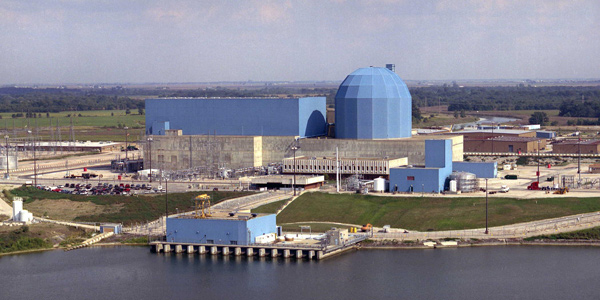By Ted Caddell
This time last year, Exelon had its hands full.
The company was deep in a problematic $6.8 billion acquisition of Pepco Holdings Inc. while bogged down in a two-front battle trying to get nuclear subsidies for plants in Illinois and New York.
Things look much brighter for the Chicago-based energy giant in early 2017.
First, the acquisition of PHI has closed, adding PEPCO, Delmarva Power and Atlantic City Electric to Exelon’s stable of electric distribution companies.
Second — and against most odds — the company was able to convince Illinois and New York legislators to pass laws providing subsidies for its troubled nuclear plants.
And somewhere along the line, Exelon picked up yet another nuclear generating station, the James A. FitzPatrick station, from Entergy. The FitzPatrick deal is expected to close this spring, the company said.
As Exelon CEO Chris Crane put it during an analyst earnings call on Wednesday, “2016 was a monumental year for Exelon.”
The company earned $410 million ($0.44/share) during the fourth quarter, compared to $347 million ($0.38/share) for the same period in 2015, missing analysts’ expectations by a penny. Annual earnings came in at $2.5 billion, up from $2.2 billion in 2015.
“We made great progress in the ongoing transformation of our company, with a focus on meeting our commitments to stakeholders via the PHI merger and the creation of the [zero-emission credit] programs in both New York and Illinois that compensate our nuclear plants for their carbon-free attributes,” Crane said.
The successful push for ZEC legislation reversed the company’s decision to retire the Clinton and Quad Cities nuclear plants, saving $120 million in projected early retirement costs, Crane said. He also noted that Exelon’s nuclear fleet had a 94.2% capacity factor for the year, up nearly 1 percentage point from the previous year.
All of the company’s electricity distribution companies enjoyed fewer storms and therefore lower outage-related costs throughout the year, he said.
Looking ahead, company executives are eyeing legislative action in several other states — including Ohio, Connecticut, New Jersey and Pennsylvania — that could result in ZEC-style subsidies for nuclear plants there.
Joe Dominguez, Exelon executive vice president of governmental and regulatory affairs and public policy, described the company’s approach to winning those concessions.
The first stage is “establishing a recognition that nuclear is the lowest-cost and most reliable zero-carbon option” for electricity customers.
“That’s where we are in Pennsylvania,” Dominguez said.
The next step: identify different “solution sets,” such as the ZEC programs already adopted or including nuclear as a qualifying resource for renewable portfolio standards.
“And it’s way too early for me to handicap where that discussion is going to go,” Dominguez said.




